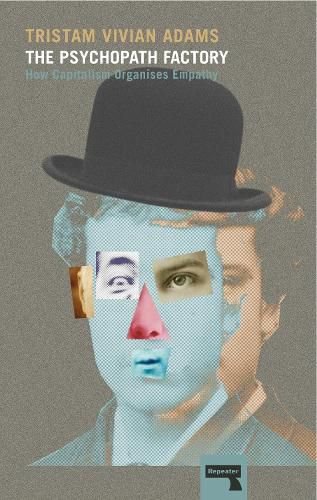Readings Newsletter
Become a Readings Member to make your shopping experience even easier.
Sign in or sign up for free!
You’re not far away from qualifying for FREE standard shipping within Australia
You’ve qualified for FREE standard shipping within Australia
The cart is loading…






In The Psychopath Factory, Tristam Adams draws on both clinical psychology and pop culture to show us the inner contradictions in the concept of the psychopaths – and of the capitalist system that at once produces and abhors psychopathic personality traits. - Adam Kotsko
Psychopaths seem to be everywhere. They are on the news and at the movies. People who lack empathy, be they ruthless entrepreneurs or crazed ‘spree killers’ are frequently labeled psychopathic; the charming socializer is just as suspect as the awkward anti-social loner. The conception of what defines a psychopath seems to be a morass of contradictions, the only consistency being the supposition of a lack of empathy.
The Psychopath Factory: How Capitalism Organizes Empathy examines how the requirements, stimuli, affects and environments of work condition our empathy. In some cases work calls for no empathy - characters who don’t blink or flinch in the face of danger nor crack under pressure. In other cases capitalism requires empathy in spades - charming, friendly, sensitive and listening managers, customer service agents and carers.
When workers are required to either ignore their empathy to do a job, or dial it up to increase productivity, they are entering a psychopathic modality. The affective blitz of work, flickering screens, emotive content, vibrating alerts and sounding alarms erode our sensitivities whilst we are modulated with attention stimulants, social lubricants and so called anti-anxiety drugs. This is amidst a virulent and exacerbating climate of competition and frenzied quantification. Capitalism pressures us to feign empathy and leverage social relationships on one hand, whilst being cold and pragmatic on the other. We are passionate and enthusiastic whilst keeping a professional distance.
Sympathy, care, compassion and altruism are important; The Psychopath Factory: How Capitalism Organizes Empathy argues that it is a mistake to presuppose that empathy can achieve these. Rather than being subject to the late capitalist organization of our empathy, psychopathy could be a means of escape.
$9.00 standard shipping within Australia
FREE standard shipping within Australia for orders over $100.00
Express & International shipping calculated at checkout
In The Psychopath Factory, Tristam Adams draws on both clinical psychology and pop culture to show us the inner contradictions in the concept of the psychopaths – and of the capitalist system that at once produces and abhors psychopathic personality traits. - Adam Kotsko
Psychopaths seem to be everywhere. They are on the news and at the movies. People who lack empathy, be they ruthless entrepreneurs or crazed ‘spree killers’ are frequently labeled psychopathic; the charming socializer is just as suspect as the awkward anti-social loner. The conception of what defines a psychopath seems to be a morass of contradictions, the only consistency being the supposition of a lack of empathy.
The Psychopath Factory: How Capitalism Organizes Empathy examines how the requirements, stimuli, affects and environments of work condition our empathy. In some cases work calls for no empathy - characters who don’t blink or flinch in the face of danger nor crack under pressure. In other cases capitalism requires empathy in spades - charming, friendly, sensitive and listening managers, customer service agents and carers.
When workers are required to either ignore their empathy to do a job, or dial it up to increase productivity, they are entering a psychopathic modality. The affective blitz of work, flickering screens, emotive content, vibrating alerts and sounding alarms erode our sensitivities whilst we are modulated with attention stimulants, social lubricants and so called anti-anxiety drugs. This is amidst a virulent and exacerbating climate of competition and frenzied quantification. Capitalism pressures us to feign empathy and leverage social relationships on one hand, whilst being cold and pragmatic on the other. We are passionate and enthusiastic whilst keeping a professional distance.
Sympathy, care, compassion and altruism are important; The Psychopath Factory: How Capitalism Organizes Empathy argues that it is a mistake to presuppose that empathy can achieve these. Rather than being subject to the late capitalist organization of our empathy, psychopathy could be a means of escape.